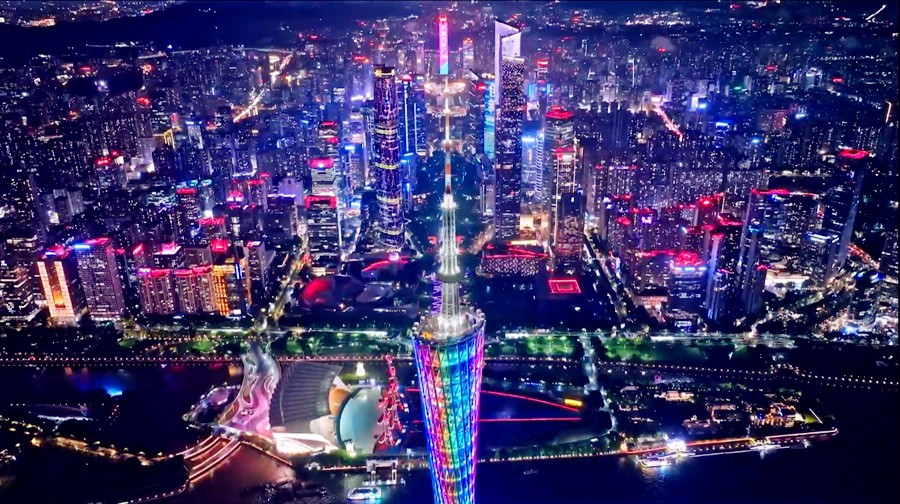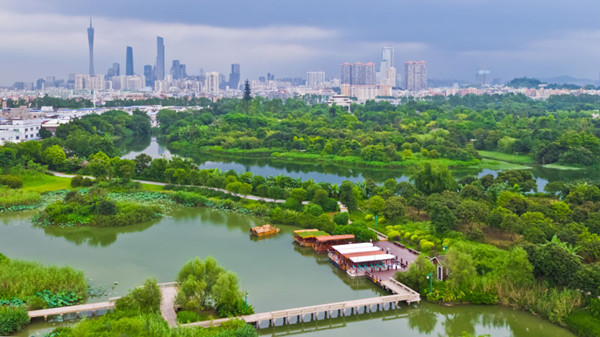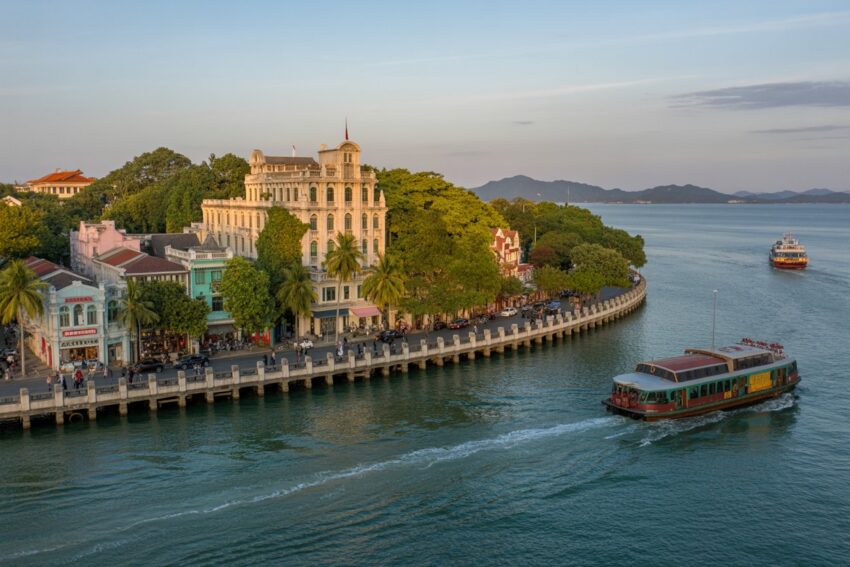
As the sun rises over the glittering glass of Canton Tower, Guangzhou, once an ancient trading port, awakens to a rhythm that beautifully intertwines heritage and modern progress. The melodic notes of Cantonese opera echo softly from the Qilou arcades of Xiguan, while self-driving shuttles glide past skyscrapers in Zhujiang New Town.
This harmony between the past and the future defines the essence of Guangzhou — a city ready to take the global stage once more as co-host of China’s 15th National Games in 2025. From ancient port of Guangzhou to modern sports capital, this transformation reflects a journey of endurance, inclusivity, and innovation.
The Pulse of a Sporting City
By 6 a.m., life along the Pearl River bursts into motion. Elderly citizens perform Tai Chi with poised concentration, young joggers sprint along the riverside, and families gather for lively table tennis games. For locals, “fitness for all” isn’t just a motto — it’s a way of life woven into Guangzhou’s cultural identity.
According to people.cn, Guangzhou’s connection to sports runs deep. The Tianhe Sports Center, built for the 1987 National Games, became the city’s first major sports landmark. Subsequent events — the 2001 National Games and the 2010 Asian Games — further strengthened its infrastructure and international reputation. Hosting the 15th National Games marks the third time Guangzhou carries this national honor, reaffirming its reputation as a cornerstone of China’s athletic development.
Its legacy extends beyond venues and into the people themselves. The city has nurtured Olympic champions like diver Chen Aisen, fencer Lei Sheng, and prodigy Quan Hongchan. Rising footballer Liu Yuke, from China’s U16 women’s team, is among the new generation carrying the torch. Their achievements mirror the city’s vision — a fusion of discipline, opportunity, and community-driven sports culture.
Tradition and Modernity in Perfect Balance
Guangzhou’s magic lies in its inclusivity — a rare ability to merge ancient tradition with modern spirit. At Baomo Garden in Panyu District, the air fills with the emotional strains of Cantonese opera as visitors from around the world watch performers in intricate costumes. Meanwhile, beneath the Liede Bridge, youths from Chaoshan region practice the Yingge dance, their rhythmic gongs and drums blending with the city’s hum of traffic.
Even everyday life carries this duality. In old-style tea houses, patrons scan QR codes for instant service, yet the familiar handwritten menus remain, preserving a personal, nostalgic charm. It’s a perfect illustration of Guangzhou’s identity — modern yet deeply rooted in its cultural soul.
This same philosophy shapes preparations for the upcoming National Games. The event’s medals, aptly named “Tongxinyue” (United Leaps), symbolize unity and shared ambition across the Guangdong-Hong Kong-Macao Greater Bay Area. Designed with motifs of kapok, bauhinia, and lotus flowers — representing each region — the medals’ circular frame takes inspiration from the Hong Kong-Zhuhai-Macao Bridge, echoing the message of harmony and connection.
Smart Sports, Greener Future

Guangzhou, a pioneer of China’s reform and opening-up era, continues to champion innovation and sustainability. Guided by the theme of “green, smart, and thrifty,” the 15th National Games will utilize 30 upgraded venues instead of building new ones, significantly reducing environmental impact.
At the heart of this green transformation lies Tianhe Sports Center, which now operates on photovoltaic solar power and rainwater recycling systems, cutting carbon emissions by nearly half. The stadium is also China’s first major arena to approach near-zero-carbon standards.
The smart revolution extends beyond infrastructure. Intelligent running tracks equipped with real-time performance monitoring and infused with Cantonese cultural elements redefine how citizens engage with sports. Autonomous electric shuttles, meanwhile, connect media centers, hotels, and airports — creating a seamless, contactless mobility experience for participants and guests alike.
Digital Innovation Meets Sporting Passion

The 15th National Games is more than an athletic showcase — it’s a technological experiment in motion. Guangzhou is integrating 5G, AI, and big data into event management, ticketing, and public safety. The city’s goal is to establish a “Smart National Games” model that could serve as a blueprint for future mega-events across China.
Beyond the Games, this digital momentum is fueling collaboration within the Guangdong-Hong Kong-Macao Greater Bay Area, enhancing economic synergy and technological exchange. Through initiatives such as a regional tech innovation mechanism, Guangzhou is positioning itself at the forefront of Asia’s sports technology ecosystem — where data, design, and athleticism converge to drive new industries.
A City Rewriting Its Future
From ancient port of Guangzhou to modern sports hub, the city stands at a pivotal moment in its story. As it prepares to welcome athletes and spectators from across China, Guangzhou isn’t just celebrating sports — it’s redefining what a modern metropolis can achieve when history meets innovation.
This transformation is not temporary; it’s a long-term commitment to progress, culture, and sustainability. With every upgrade, from carbon-efficient stadiums to AI-powered transport, Guangzhou reaffirms its role as a global example of balanced urban development.
The upcoming Games will be more than competition — they will be a statement. A statement that a city with 2,000 years of history can still evolve, adapt, and inspire. From its ancient harbors to its intelligent arenas, Guangzhou continues to prove that tradition and innovation are not opposites — they are partners in shaping the future.






